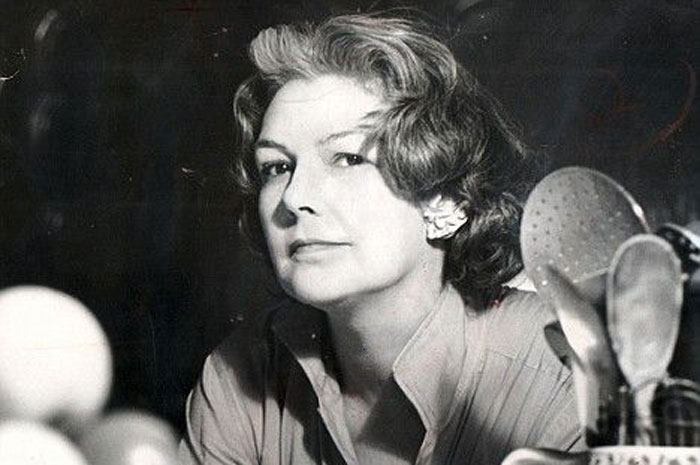The Daily Meal Hall Of Fame: Elizabeth David
With the help of The Daily Meal Council, we have selected ten key figures in the history of food to honor this year in our Hall of Fame. Here, Sacramento-based food retailer and Council member Darrell Corti explains why English food writer Elizabeth David belongs on the roster.
The name "Elizabeth David" probably does not resonate with a lot of people interested in food today. I didn't say "foodies," since she was very much against the term, though she was the consummate example of what we understand it to mean.
Born into a well-placed British family, Elizabeth David (1913–1992) really didn't stay close to her origins. She did know, and was friendly with, some of the most illustrious names in British art and literary circles from the 1930s until her death in 1992, but what concerns us here is not her life so much as her art: her writing, especially her cookbooks.
David wrote prodigiously — not only her famed cookbooks but also articles and promotional pieces. Then there was her involvement as cofounder (with Alan Davidson and Richard Olney) of the quarterly Petit Propos Culinaire, which has just published its hundredth issue. Her cookbooks are remarkable for their scope and depth. Her recipes are never boring: to the novice, they are perhaps too much in shorthand, but, to the experienced cook, they are a model of straightforwardness. Hers were not recipe books of minute details — except where it mattered, and sometimes it mattered a lot. [pullquote:left]
David started writing about food in 1949, with an article for Harper's Bazaar on Mediterranean cooking. She expanded this piece into her first book, A Book of Mediterranean Food, published in 1950. It became an instant bestseller, going through some 19 printings up through 1978. It would become the work that revolutionized British ideas of food (the country, in those days, still suffered under the rationing that had begun at the outbreak of World War II) and it spawned innumerable followers.
David's experiences in France before the war and the success of her first book led to her second, French Country Cooking, in 1951. This was followed by Italian Food (1954), Summer Cooking (1955), and French Provincial Cooking (1960). Then came the two books on English cooking (and no, that is not an oxymoron): Spices, Salt and Aromatics in the English Kitchen (1970) and English Bread and Yeast Cookery (1977). An Omelette and a Glass of Wine, a collection of her published short works, appeared in 1984. She spent years doing research on ice and the chilling of food, and the resulting work, Harvest of the Cold Months, was published posthumously in 1994, edited and with notes by Jill Norman, David's longtime editor and literary executor. Following this, under Norman's aegis, came other books that David had begun or for which she had left behind extensive notes: A South Wind Through the Kitchen (1997; the title is a reference to her friend and mentor Norman Douglas's most famous novel, South Wind), Is There a Nutmeg in the House? (2000), Elizabeth David's Christmas (2003), and At Elizabeth David's Table (2010).
David was acerbic and charming, and catholic in her tastes, except when it came to eating. She liked things in a certain way and no other, certain wines and few others, certain cuisines and very few others. She really had no interest in fusion cooking and very little in string-of-ingredients dishes that are so prevalent today. She did not like plastic wrap and preferred foods wrapped in waxed or parchment paper. Even foil was suspect.
It takes a bit of time to read through David's cookbooks, but they are never boring. They are a look at food from very specific places with a very acute eye to what had been sourced locally, and how this affected the dish when it was made elsewhere. To the restless British coming out of a war, her books must have seemed like a dream. Flavors like garlic (which the British used very sparingly, if at all) and fresh herbs struck some kind of chord. She wrote, in the introduction to Italian Food, that "this is a book for those readers and cooks who prefer to know what the original dishes are supposed to be like, and to be given the option of making their own adaptations and alterations according to their taste and circumstances. There is, I know, a school of writers who seem to believe that English housewives are weak in the head and must not be exposed to the truth about the cooking of other countries... if I believed that English women really needed this kind of protection — censorship it almost amounts to — I would have packed in cookery writing long ago." This, I think, sums up Elizabeth David and her work.
